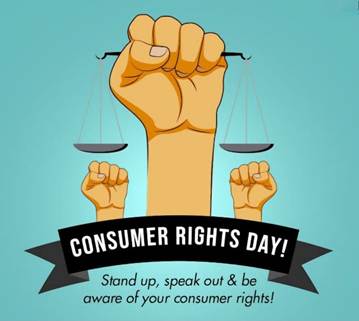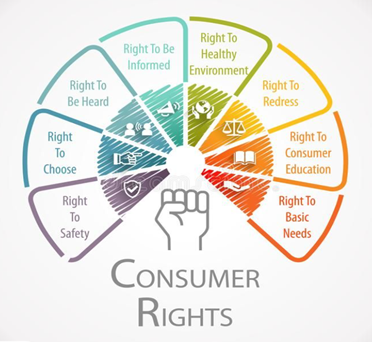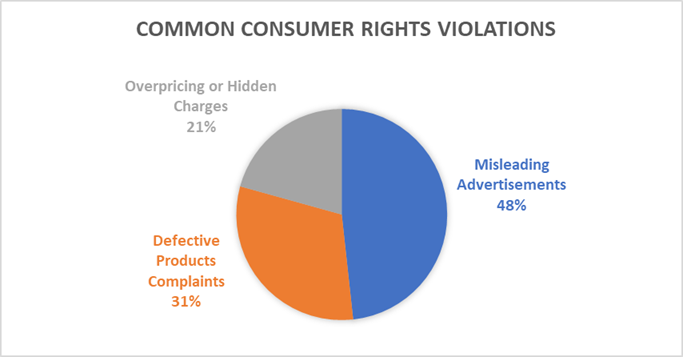Consumer Rights: Empowering Citizens for a Fair Marketplace
 SAHANA G
SAHANA GIntroduction:
Every individual is a consumer in some way, purchasing goods and services for daily needs. However, not everyone is aware of their consumer rights and responsibilities. World Consumer Rights Day, observed on March 15th, serves as a reminder to educate consumers about their rights and how to protect them.

What Are Consumer Rights?
Consumer rights are the legal entitlements that protect buyers from unfair trade practices, defective products, and unethical business behaviour.
The United Nations has recognized the following fundamental consumer rights:

Right to Safety – Protection from hazardous goods and services.
Right to Choose – Freedom to select from a variety of goods and services.
Right to be Heard – Consumers can express grievances and expect fair handling.
Right to be Informed – Access to accurate details about products and services.
Right to a Healthy Environment – A safe and sustainable marketplace.
Right to Redress – Compensation for defective products or services.
Right to Consumer Education – Awareness about consumer rights and responsibilities.
Right to Basic Needs – Access to essential goods and services like food, water, healthcare, and housing.
Common Consumer Rights Violations
Despite legal protections, consumer rights violations are widespread. Some common issues include:
False Advertising: Misleading claims about products.
Defective Products: Selling faulty or substandard items.
Overpricing: Charging more than the Maximum Retail Price (MRP).
Hidden Charges: Additional costs not disclosed upfront.
Data Privacy Breaches: Misuse of consumer information.
Statistics (Estimated Data, 2025)

How to Protect Your Consumer Rights?
Consumers must stay informed and take action against violations. Here’s how:
Read Product Labels Carefully – Check expiry dates, ingredients, and pricing.
Keep Bills and Receipts – Proof of purchase helps in case of disputes.
Beware of Scams – Avoid fraudulent schemes and misleading advertisements.
Report Issues – File complaints with consumer forums or legal authorities.
Spread Awareness – Educate others about their rights and responsibilities.
📞 Consumer Helpline Number: 1800-11-4000 (India)
Case Study: Samsung Galaxy Note 7 (2016)
Issue:
In 2016, Samsung faced a massive consumer rights crisis when its Galaxy Note 7 smartphones were found to have a battery defect that caused overheating and explosions. Several incidents of phones catching fire were reported globally, putting consumer safety at risk.
Violation of Consumer Rights:
Right to Safety – The faulty batteries posed a serious hazard to users.
Right to Information – Initially, consumers were not informed about the risks.
Right to Redress – Customers had to return their defective phones for refunds or replacements.
Outcome:
Samsung recalled 2.5 million units worldwide.
The company lost over $5.3 billion due to recalls and compensation.
The case highlighted the importance of product safety testing and consumer protection laws.
This incident remains one of the biggest examples of corporate accountability and the power of consumer rights enforcement.
Conclusion:
Consumer rights are essential for a fair and transparent market. By being aware, vigilant, and proactive, consumers can safeguard their interests and contribute to an ethical economy. This World Consumer Rights Day, let’s pledge to be informed consumers and demand fairness in every purchase.
“Your Rights Matter – Be an Aware Consumer!”
Subscribe to my newsletter
Read articles from SAHANA G directly inside your inbox. Subscribe to the newsletter, and don't miss out.
Written by
